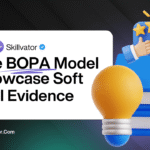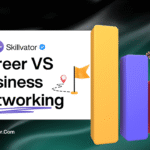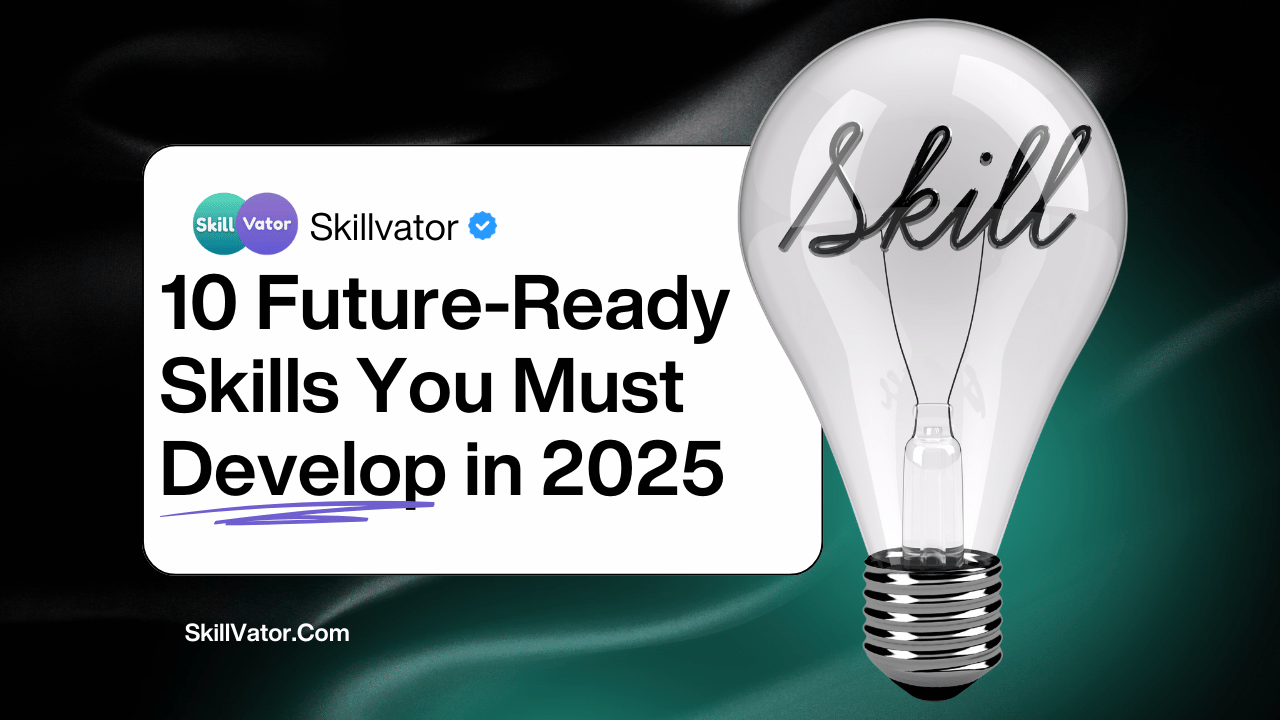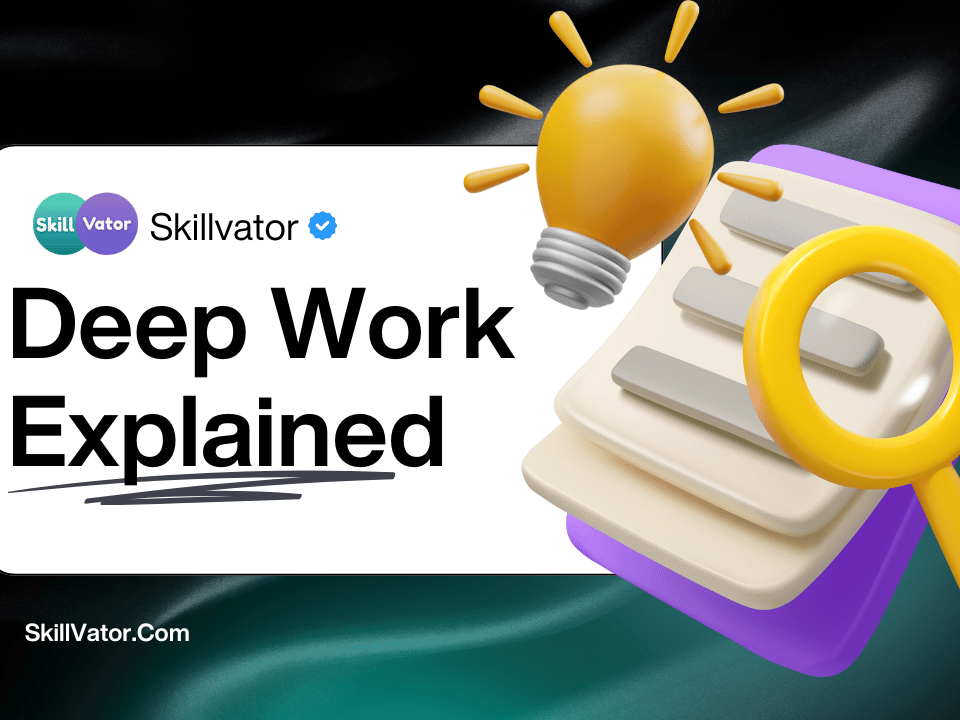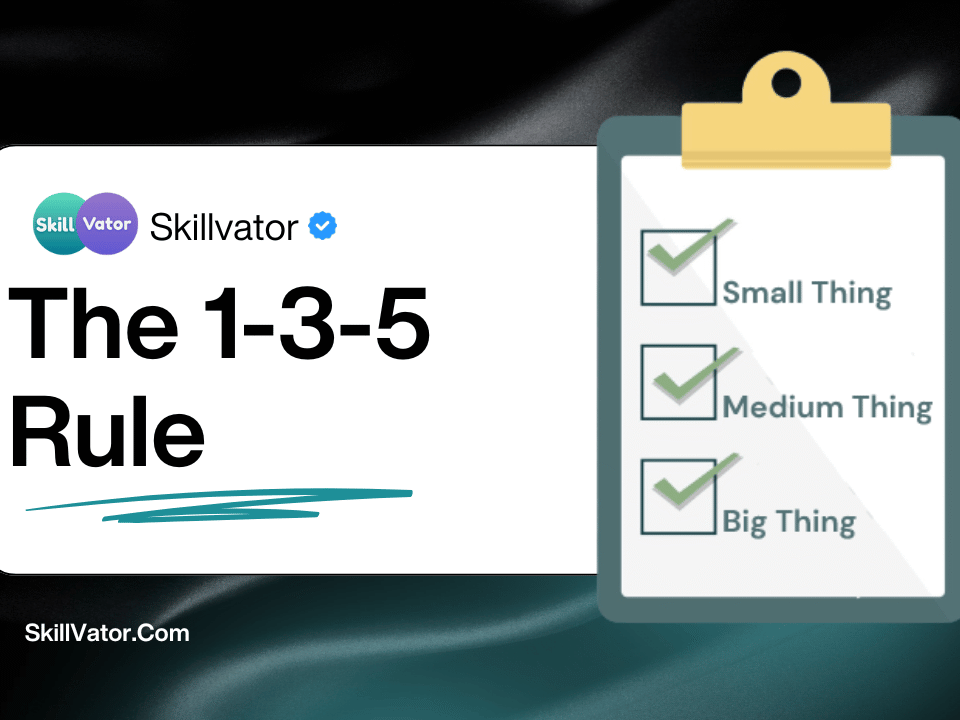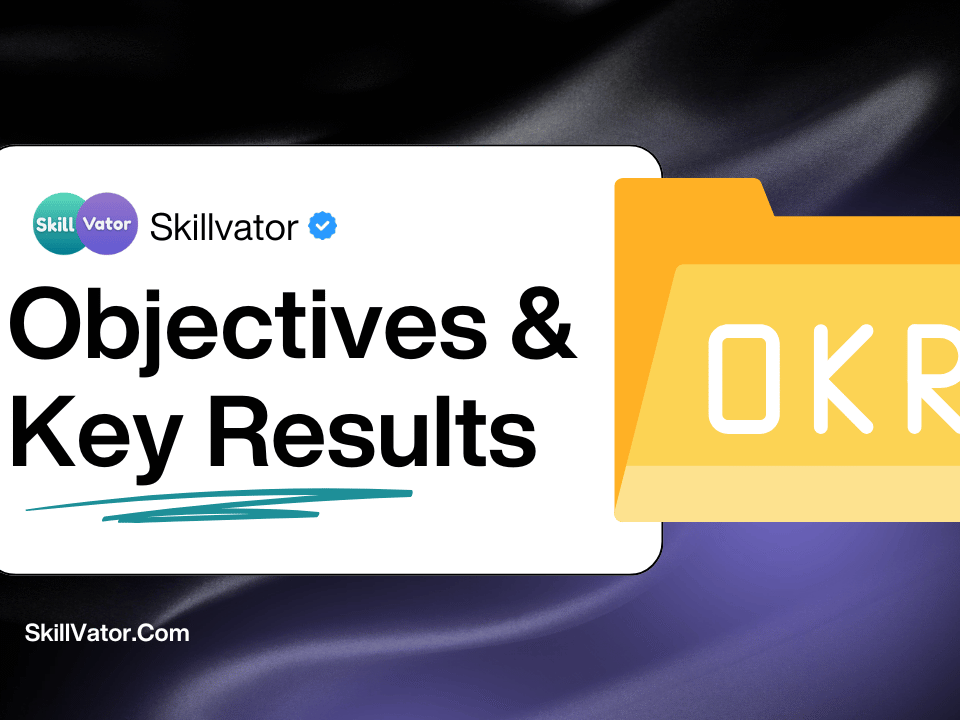Discover 10 future-ready skills to develop in 2025 beyond AI and automation. Learn the digital, human, and adaptive skills employers really want.
Technology is moving faster than ever. With AI, automation, and digital transformation reshaping the workplace, one big question keeps coming up: what skills will actually matter in 2025 and beyond?
Here’s the truth: while critical thinking and communication will always be important, employers are now looking for future-ready skills that go beyond the usual buzzwords. If you want to stay competitive, adaptable, and ahead of the curve, these are the 10 skills you must develop in 2025. stay with Skillvator.
Read this full blog about : Essential Soft Skills for Career Advancement
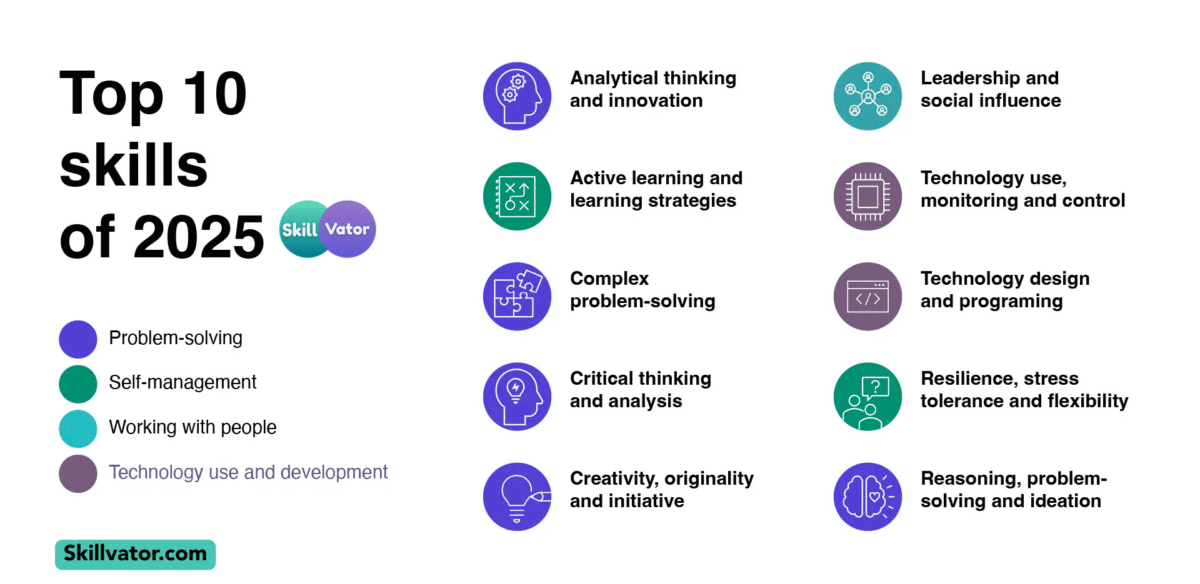
10 Future-Ready Skills You Must Develop in 2025
10 skills you must develop in 2025
1. AI Collaboration Skills
AI won’t replace all jobs — but people who know how to work with AI will replace those who don’t.
-
Learn to prompt effectively (prompt engineering isn’t just for coders).
-
Understand AI limitations so you can validate outputs.
-
Blend human creativity with AI efficiency for better results.
👉 Why it matters: By 2025, nearly every role will involve some AI tools. Knowing how to collaborate with them will set you apart.
2. Digital Soft Skills
Remote and hybrid work are here to stay. It’s not just about being on Zoom — it’s about how well you present yourself, communicate asynchronously, and collaborate digitally.
Examples include:
-
Writing clear, concise Slack/Teams messages
-
Managing your online presence in virtual meetings
-
Building trust remotely with teams you may never meet in person
👉 Why it matters: Employers want people who can thrive in global, digital-first teams, not just in office spaces.
3. Cultural Intelligence (CQ)
The modern workplace is global. You might be working with colleagues in India, clients in Europe, and partners in the U.S. — all in the same week.
Develop skills in:
-
Understanding cultural differences in communication styles
-
Respecting workplace norms across regions
-
Building inclusive environments where diverse perspectives thrive
👉 Why it matters: By 2025, cross-cultural collaboration will be one of the most valuable workplace skills.
4. Skill Stacking
Instead of being a “jack of all trades,” learn to combine unusual skill sets that make you stand out.
For example:
-
A marketer who understands basic coding
-
A designer who can analyze data
-
A project manager with public speaking expertise
👉 Why it matters: Skill stacking makes you hard to replace and creates unique career opportunities.
5. Human-AI Ethical Judgment
AI is powerful — but it can be biased, misused, or inaccurate. Future-ready professionals must know when to trust technology and when to rely on human judgment.
Practical applications:
-
Spotting AI biases in hiring tools
-
Ensuring ethical data use
-
Making human-centered decisions even when AI suggests otherwise
👉 Why it matters: In 2025, employers will value professionals who can balance efficiency with ethics.
6. Resilience & Change Agility
Change is the only constant. Whether it’s new tools, market shifts, or job role transformations, the ability to bounce back and adapt quickly is essential.
How to build it:
-
Practice continuous learning (micro-learning, online courses, skill refreshers)
-
Embrace failure as feedback
-
Stay calm in high-change environments
👉 Why it matters: Companies want employees who see change as an opportunity, not a threat.
7. Data Storytelling
Data is everywhere. But raw numbers don’t influence decisions — stories do.
Future-ready professionals must be able to:
-
Read and interpret basic data
-
Create visuals and narratives around data
-
Communicate insights that drive action
👉 Why it matters: In 2025, leaders will need team members who can translate data into impact.
8. Sustainability & Green Skills
Companies are under pressure to become more sustainable. From energy efficiency to ethical sourcing, green literacy will be a valuable career skill.
Examples of green skills:
-
Understanding ESG principles (Environmental, Social, Governance)
-
Applying sustainable practices in projects
-
Leading eco-conscious initiatives at work
👉 Why it matters: By 2025, sustainability won’t just be a buzzword — it will be part of every company’s strategy.
9. Empathy-Driven Leadership
As automation grows, what sets humans apart is empathy. Leaders who can listen, support, and understand their teams will create stronger workplaces.
Practical steps:
-
Actively practice emotional intelligence (EQ)
-
Give constructive feedback with empathy
-
Build psychological safety within teams
👉 Why it matters: Empathy is becoming the cornerstone of effective leadership in the AI-driven era.
10. Continuous Learning Mindset
The half-life of skills is shrinking. A skill learned today may become outdated in 3–5 years. The only way to stay relevant is to keep learning.
Ways to cultivate it:
-
Take micro-learning courses regularly
-
Join professional communities online
-
Use tools like Skillvator to plan and track skill growth
👉 Why it matters: In 2025, the best employees won’t just have strong skills — they’ll have the ability to keep learning new ones fast.
if you want to create your skills just in 30 minutes , read How to Build a Skill in Just 30 Minutes a Day?
Conclusion
The future of work isn’t about fearing AI or automation — it’s about learning the human, digital, and adaptive skills that machines can’t replace. By focusing on these 10 future-ready skills, you’ll position yourself not just to survive workplace changes in 2025, but to thrive in them.
Soft skills, digital literacy, and adaptability will remain your career superpowers. And with the right mindset, you’ll be ready for whatever the future brings.
Written by Raha Heydari, Founder of Skillvator
People Also Ask (FAQ Section)
1. What are the top future-ready skills for 2025?
The top future-ready skills for 2025 go beyond traditional communication and teamwork. They include AI collaboration, digital soft skills, cultural intelligence, skill stacking, resilience, data storytelling, and empathy-driven leadership. These skills prepare professionals to thrive in a workplace shaped by automation, globalization, and rapid change.
2. Why do we need new skills beyond AI and automation?
AI and automation are transforming tasks, but they cannot replace human judgment, creativity, empathy, and adaptability. New skills like ethical decision-making, cultural intelligence, and continuous learning ensure that professionals remain valuable in ways that machines cannot replicate.
3. How can I prepare my career for 2025?
To prepare for 2025, start developing hybrid skills: combine technical literacy (like AI tools, data analysis) with human-centered soft skills (like empathy, adaptability, and cultural intelligence). Focus on continuous learning, take online courses, and practice skill stacking to create a unique professional edge.
4. What soft skills will be most important in the future?
In 2025, the most important soft skills will be empathy, resilience, adaptability, cultural intelligence, and emotional intelligence. Employers want professionals who can lead with understanding, adapt quickly to change, and build trust in digital and global work environments.
5. Which industries need future-ready skills the most?
Future-ready skills are valuable across industries, but they are critical in tech, healthcare, education, sustainability, and digital-first businesses. These sectors are transforming rapidly and need people who can combine AI literacy with strong human skills.
6. Can soft skills really be measured in the workplace?
Yes, soft skills can be measured using rubrics, KPIs, and models like BOPA. For example, empathy can be evaluated through feedback surveys, adaptability through performance under change, and communication through team collaboration outcomes.
7. What is skill stacking and why is it important?
Skill stacking is the practice of combining different skills to create a unique professional advantage. For instance, a marketer who knows data analysis, or an engineer who understands public speaking. This makes you more adaptable and harder to replace in the job market.
Resources
-
“Future Skills: The 20 Skills and Competencies Everyone Needs to Succeed in a Digital World” by Bernard Marr
-
A practical guide on digital-age skills with a focus on AI, data, and human adaptability.
-
-
“21 Lessons for the 21st Century” by Yuval Noah Harari
-
A powerful exploration of how automation, AI, and social shifts are shaping the skills we need.
-
-
“The Skills: How to Win at Work” by Mishal Husain
-
Focuses on real-world workplace skills like confidence, resilience, and communication.
-
-
World Economic Forum (WEF) – Future of Jobs Report 2023 (PDF)
-
Lists the top skills employers want by 2025, including resilience, problem-solving, and AI literacy.
-
OECD – Skills Outlook 2021 (PDF)
-
Explains how lifelong learning and adaptability are essential in the evolving labor market.

